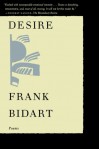1
Followers
29
Following
Seanachie: A Boston Irish Storyteller and Part-Time Shaman
Books about place, magic, Faeries, Ireland, sex, God, and love
Currently reading
New Orleans as It Was
New Orleans after the Civil War
Visions and Beliefs in the West of Ireland (complete: First & Second Series)
Bright Dead Things: Poems
The Subtle Art of Not Giving a F*ck: A Counterintuitive Approach to Living a Good Life
Desire: Poems
Selected Poems 1976-2012
An Anthology of Modern Irish Poetry
I Am An Executioner: Love Stories
An Artist of the Floating World
The Accidental City: Improvising New Orleans
 I don’t typically judge a book by its acknowledgements, but the Accidental City had pages of acknowledgement so turgid that one suspected they were not driven by genuine gratitude or humility but instead by a swollen pride and self-regard. It was this tone that marred much of the good work in this history of New Orleans from its founding to the Battle of New Orleans. As an example, the author seemed not to trust the reader to remember allusions and characters referenced pages earlier and hence themes and anecdotes were repreated presumably to refresh the reader’s feeble imagination. This is no way to write a history.
I don’t typically judge a book by its acknowledgements, but the Accidental City had pages of acknowledgement so turgid that one suspected they were not driven by genuine gratitude or humility but instead by a swollen pride and self-regard. It was this tone that marred much of the good work in this history of New Orleans from its founding to the Battle of New Orleans. As an example, the author seemed not to trust the reader to remember allusions and characters referenced pages earlier and hence themes and anecdotes were repreated presumably to refresh the reader’s feeble imagination. This is no way to write a history.The theme of The Accidental City is that New Orleans was an unlikely outcome of conflicting forces and outsized personalities. Very close readings of politically expedient marriages and French court intrigues are this history’s strength. Never was there a more obvious illustration that inner workings at power centers can have profound effects on far flung places like New Orleans, which was at the epicenter of European struggle for dominance among Spaniards, French, and English. The Accidental City is also good at tracing the effect of San Domingo and the slave rebellion of Toussaint L’Ouverture on the whole Caribbean trade.
All in all, I would deem it a solid work marred by a pompous tone and the occasional imposition of a form of cultural analysis decidedly academic, politically correct, and anachronistic.











